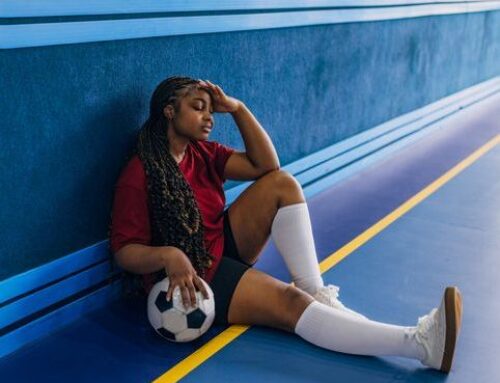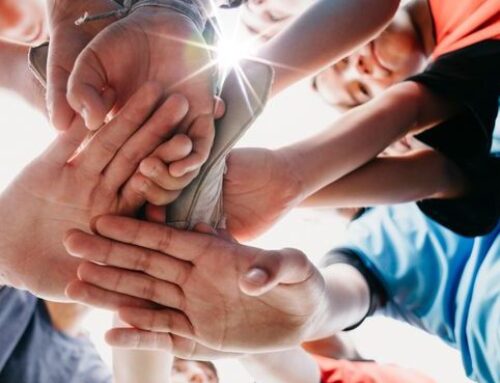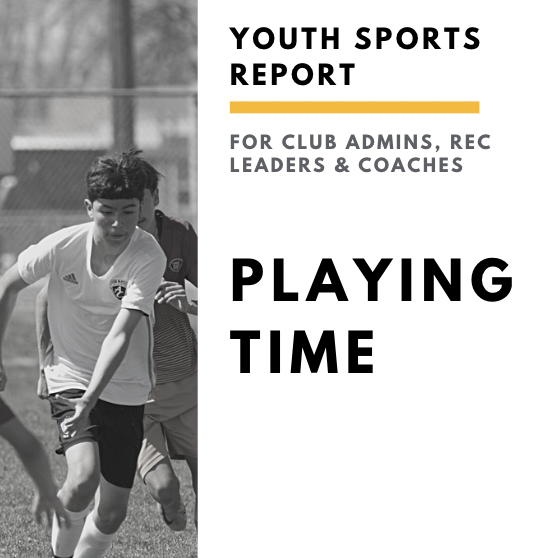Get our exclusive report. Download the iSport360 Club Switching Report Here – For Club Admins, Rec Leaders and Coaches.
Why Athletes Should Watch “Inside Out 2”
When we think of sports, we often focus on physicality—speed, strength, endurance, and skill. But behind every great athlete is a mind working just as hard as the body. Success in sports requires emotional intelligence, mental resilience, and the ability to manage stress, pressure, and failure. That’s where “Inside Out 2”, Pixar’s animated exploration of emotions, offers invaluable insights. While it may not be a sports movie in the traditional sense, its lessons about emotional balance and mental health are deeply relevant to athletes of all levels. Here’s why athletes should watch “Inside Out 2”.
1. Emotional Awareness and Control
“Inside Out 2” dives into the inner workings of emotions, spotlighting characters like Joy, Sadness, Anger, Fear, and Disgust as they shape the thoughts and behaviors of the film’s protagonist, Riley. For athletes, understanding these emotional forces is crucial. Emotions are intertwined with performance, and how athletes manage their emotional state can often determine whether they succeed or fail in crucial moments.
For instance, anxiety before a big game or frustration after a poor performance can spiral out of control if not properly addressed. By watching “Inside Out 2”, athletes can learn to recognize the emotions influencing their actions, giving them greater emotional awareness. This self-awareness allows athletes to regain focus when they feel overwhelmed, whether it’s calming down before stepping onto the court or maintaining composure in the face of defeat.
Athletes who are more emotionally aware and in control can better manage high-pressure situations, avoiding the emotional swings that often lead to mistakes or burnout.
2. The Importance of Sadness and Vulnerability
In sports, there is often a culture of toughness—both physical and emotional. Athletes are encouraged to push through pain and suppress negative feelings like sadness or fear. However, “Inside Out 2” challenges this mindset by showing the importance of emotions like Sadness. Far from being a weakness, Sadness in the movie serves a vital purpose: it helps Riley process her feelings, reflect on her experiences, and grow emotionally.
For athletes, embracing moments of vulnerability can be transformative. Injuries, losses, and setbacks are inevitable in sports, but instead of avoiding the emotional toll these events bring, athletes should allow themselves to process their emotions. This doesn’t mean wallowing in defeat, but rather giving themselves permission to feel sad, frustrated, or disappointed before moving forward.
Athletes can gain a deeper understanding of how sadness can fuel growth, motivate recovery, and enhance resilience. Emotional honesty allows them to better handle challenges, ultimately leading to improved performance.
3. Resilience in the Face of Change
One of the central themes of “Inside Out 2” is how Riley deals with change—moving to a new city, adjusting to a new environment, and the emotional upheaval that comes with it. Athletes, too, often face significant changes throughout their careers: moving to new teams, dealing with coaching changes, or transitioning from high school to college sports and beyond. Each of these changes can bring an emotional burden that, if not addressed, can negatively affect performance.
By watching Riley navigate her emotional world during these transitions, athletes can learn to approach change with a more open mindset. Instead of resisting or feeling overwhelmed, they can see how to adapt emotionally, using tools like resilience and flexibility to stay grounded.
Understanding that emotions will fluctuate during periods of change, and that this is a normal part of life, can help athletes become more adaptable and ready to face new challenges head-on.
4. Balancing Joy and Pressure
Athletes, especially those at competitive levels, often face immense pressure to succeed. Whether it’s meeting personal goals, winning championships, or securing scholarships, the constant demand to perform can take a toll on their mental health. In “Inside Out 2”, Joy often tries to dominate Riley’s emotional landscape, trying to push aside other emotions to keep everything happy and positive. However, the movie makes it clear that a singular focus on joy—without acknowledging other emotions—can be counterproductive.
For athletes, this is a crucial lesson. While staying positive is important, they must also recognize and address the pressure, stress, and doubts they may feel. Ignoring these emotions can lead to burnout or even poor performance, as athletes may become overwhelmed when things don’t go as planned. Balance is key.
Recognizing and managing the full range of emotions, rather than striving for constant joy or success, allows athletes to remain mentally healthy and sustainable in their careers. It’s okay to feel nervous before a game, frustrated after a tough loss, or even uncertain about the future. Acknowledging these emotions rather than suppressing them leads to healthier mental habits and, ultimately, better performance on the field.
5. The Role of Teamwork in Emotional Support
Athletes often rely on their teammates for physical support during games, but “Inside Out 2” underscores the importance of emotional support as well. Throughout the film, Riley’s emotions work together to guide her actions and decisions, even when they disagree. In the same way, athletes need to lean on their teammates not just for their skills, but for emotional support, too.
Athletic teams are communities, and fostering emotional bonds can improve team cohesion. By watching “Inside Out 2”, athletes may see the value of communicating with their teammates about their feelings, whether it’s dealing with the stress of a big game or sharing the joy of a victory. Emotional honesty within teams can enhance trust and create a stronger sense of unity, which often translates into better teamwork and performance.
Wrap Up
“Inside Out 2” may not be a traditional sports movie, but its exploration of emotions is highly relevant to athletes. It teaches them the importance of emotional awareness, resilience in the face of change, the value of sadness, and how to balance joy with pressure. Moreover, it emphasizes the significance of teamwork in emotional well-being. For athletes who want to reach their full potential—physically and mentally—“Inside Out 2” offers valuable lessons on how to navigate the emotional complexities that come with competing in sports.
iSport360 is the only app that does it all for youth sports. For more information on what we do, click here.
About the author:
Amy Masters is a sports mom, coach, and club administrator. She has been coaching youth sports for more than 10 years. She started Jr Lions Field Hockey, the youth recreation program for the Hunterdon County community growing it from 40 players in year 1 to 150 players by year 3. A few years later, she saw the love and competitiveness grow then started Omega Field Hockey Club serving NJ and PA players. Before coaching, she was a collegiate field hockey player for Lock Haven University. In her spare time (lol), she is head of marketing for iSport360 and the co-editor of the Youth Sports Survival Guide. The Youth Sports Survival Guide is the largest youth sports newsletter in the world.
Learn more or request a demo of our youth sports software that is helping teams improve communication, organization and player development.
October 1, 2024





